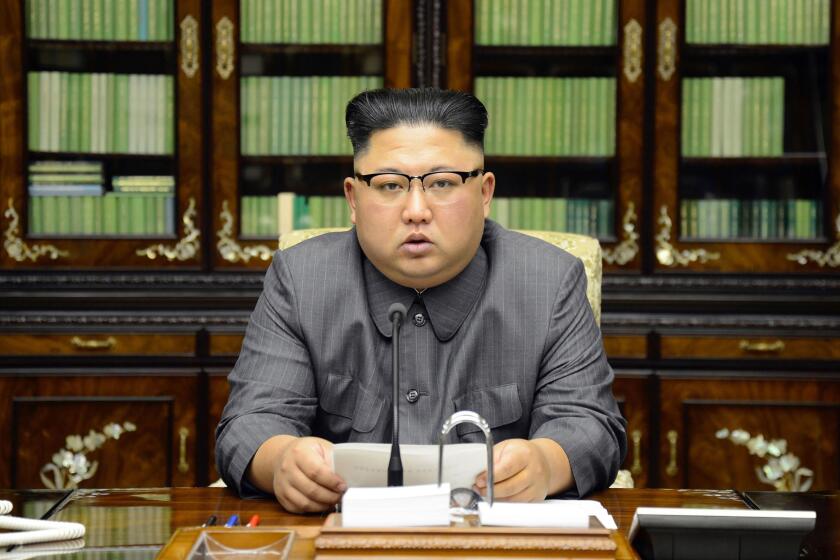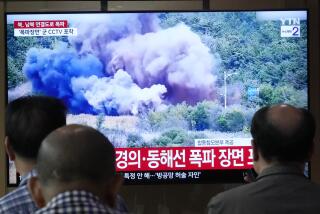North Korea cuts off contact with South Korea, dialing up tensions
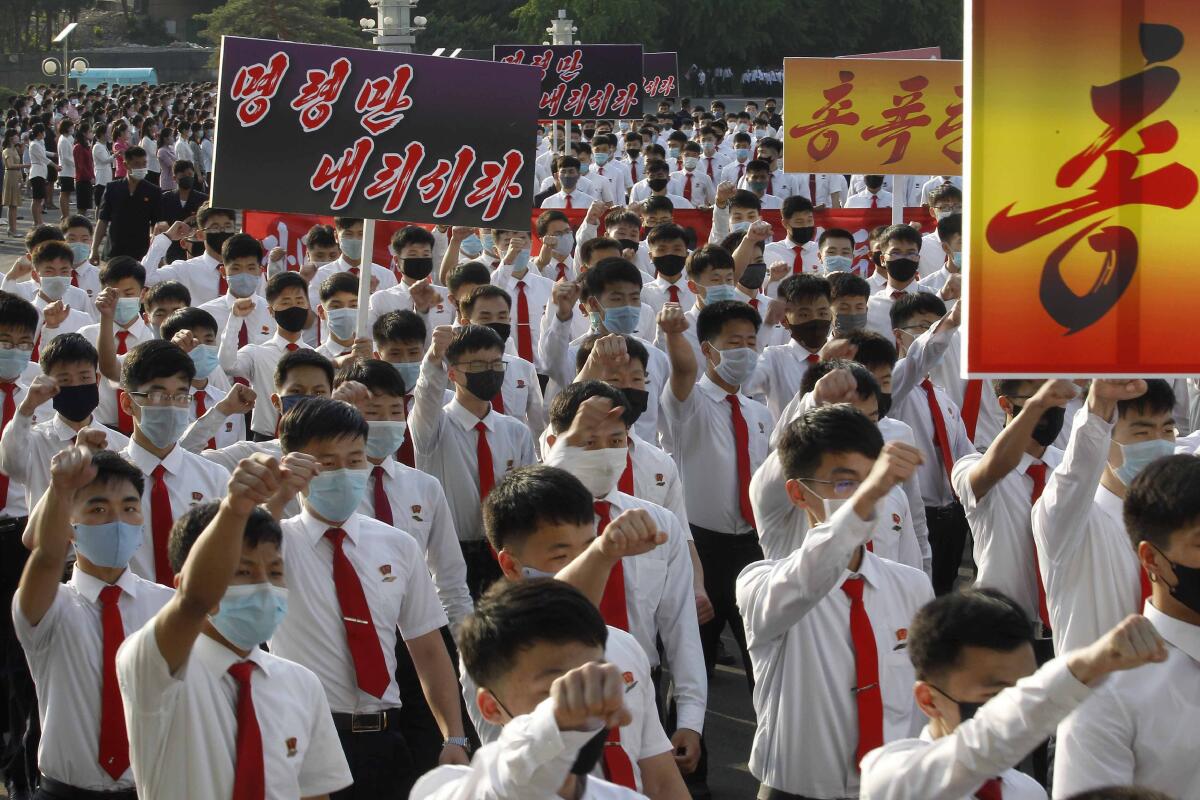
SEOUL — After days of increasingly hostile rhetoric, North Korea on Tuesday said it was cutting off all communication with South Korea, renewing tensions after a lull during which both countries battled the threat of the coronavirus.
In a statement published in state media, Pyongyang said it was severing contact with Seoul, including a direct connection to the South Korean president and military hotlines designed to deescalate conflict in the event of incidents or clashes at the border. North Korea has cut off contact on previous occasions after lines were first installed in 1971, but has kept the channels open since 2018.
South Korean authorities said their counterparts in the North did not answer regularly scheduled twice-daily calls Tuesday. The move appeared to end a period of consistent contact that began amid a thaw in relations during the 2018 Pyeongchang Winter Olympics in South Korea, to which North Korea sent a delegation.
Despite three face-to-face meetings between the leaders of the two Koreas that year, improvement in relations and inter-Korean projects have been on ice after nuclear negotiations between U.S. and North Korea broke down last year. Prospects of eased sanctions against North Korea, clearing the path for economic cooperation, railway connections and political detente between north and south, remain remote since talks between President Trump and North Korea’s Kim Jong Un ended without an agreement in Hanoi.
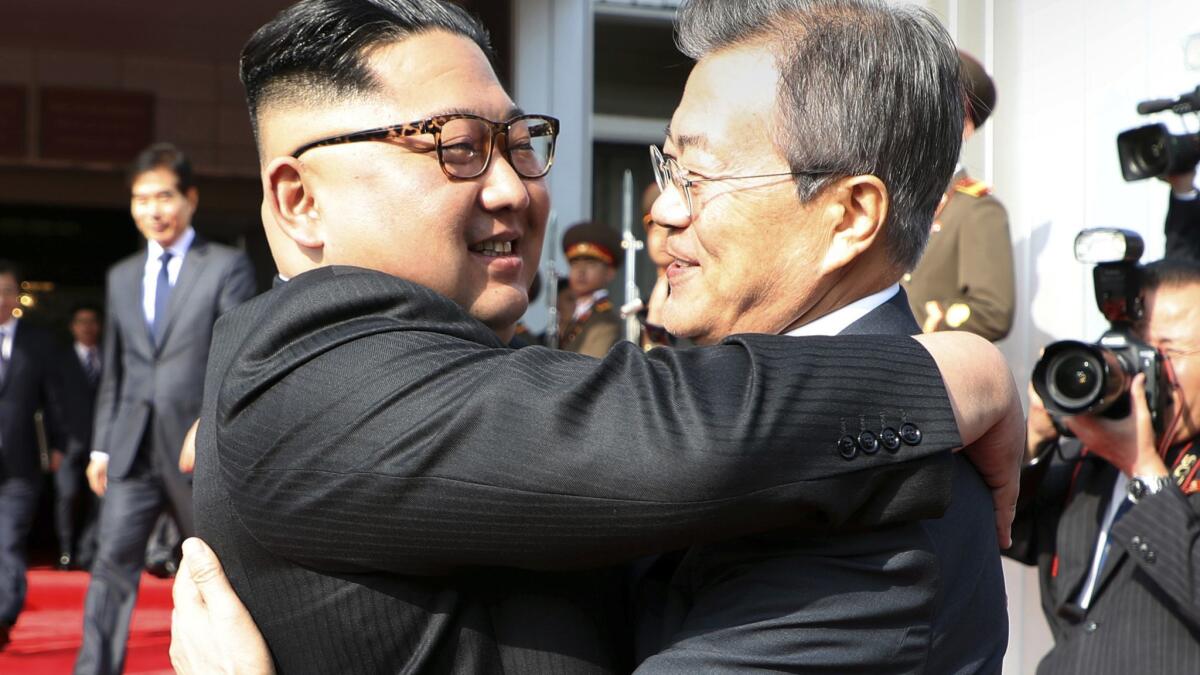
In recent days, a series of increasingly barbed statements in North Korea’s state media denounced the South Korean government, accusing Seoul of “shielding” escapees from North Korea now living in the south.
Some North Korean refugees have become vocal activists against the brutalities of the regime in their home country, and have been for years sending leaflets and other materials into the north in smuggled thumb drives, in packets attached to helium balloons or in plastic bottles floated out to sea to wash up on North Korean shores.
North Korean state media says leader Kim Jong Un has made his first public appearance in 20 days amid rumors about his health.
“The recent reckless acts of the human scum who frantically scattered anti-DPRK leaflets ... [is a] heinous provocation of hurting our supreme leadership,” North Korea official Rodong Sinmun said in a statement Tuesday, referring to the country by its official name, the Democratic People’s Republic of Korea. “It is none other than the South Korean authorities who must pay a dear price for it.”
A statement in the state-run Korea Central News Agency cited the refugees’ activities as the reason for North Korea cutting off communication.
“This has driven the inter-Korean relations into a catastrophe,” Tuesday’s statement said in its English translation. “We have reached a conclusion that there is no need to sit face to face with the South Korean authorities and there is no issue to discuss with them, as they have only aroused our dismay.”
In a statement last week, Kim Yo Jong, Kim’s sister, also threatened to scrap a military agreement between the Koreas and pull the plug on a joint industrial complex that has been sitting dormant.
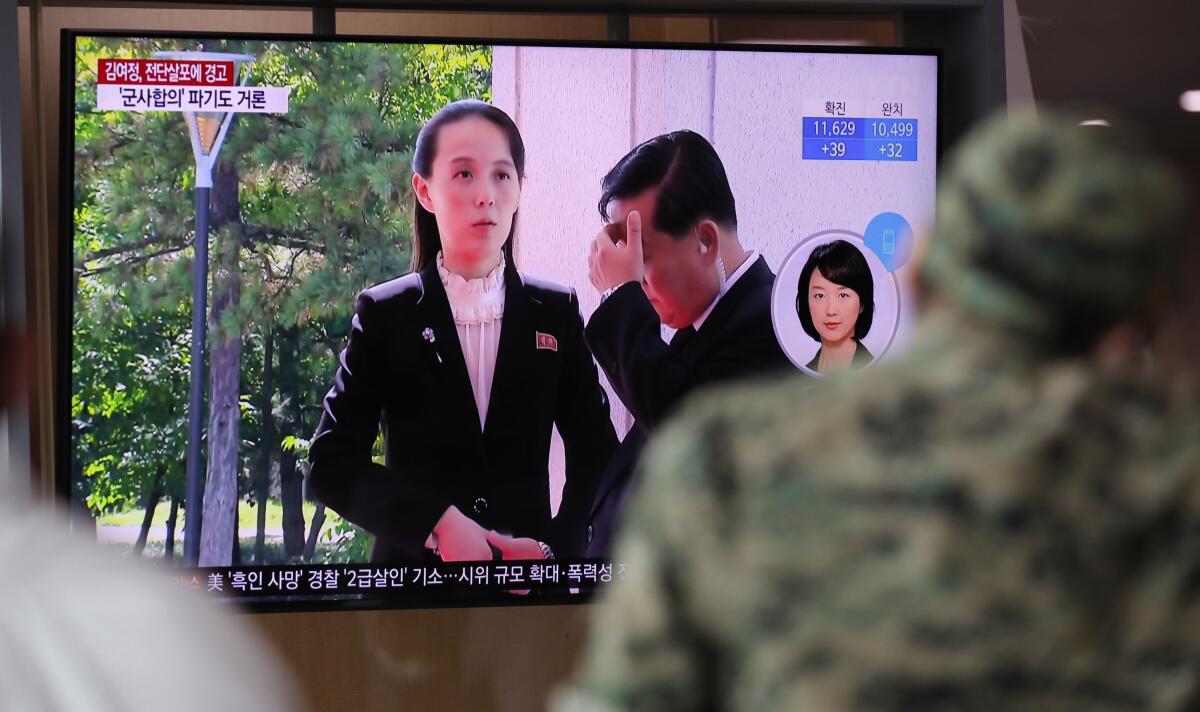
Go Myong-hyun, a research fellow at the Seoul-based Asan Institute for Policy Studies, said the refugees were probably a pretext for North Korea to begin ramping up pressure on the peninsula in order to get the U.S.’ attention as the end of Trump’s current term looms. Trump broke with decades of precedent in agreeing to sit down with a North Korean head of state, something past U.S. presidents had refused to do.
“As it’s always done, when the country wants to increase its leverage in negotiations with the U.S., it takes aim at South Korea,” Go said. “They’re dialing up the provocation with November’s U.S. presidential election in mind.”
Go said North Korea may have planned on moves earlier in the year in hopes of restarting talks with the U.S., but the global threat of the coronavirus appears to have gotten in the way. The country, which shares a 880-mile border with China, was among the first to seal its borders to all foreigners. It claims it has had zero infections, an assertion some observers doubt.
Breaking News
Get breaking news, investigations, analysis and more signature journalism from the Los Angeles Times in your inbox.
You may occasionally receive promotional content from the Los Angeles Times.
Christopher Green, a lecturer in Korean studies at Leiden University in the Netherlands, said that, while it was unclear what North Korea’s endgame was, it has become a tried-and-true tactic for the country to create a sense of tension leading up to negotiations with South Korea or the U.S.
“The North Koreans have manufactured what I call a ‘straw man crisis,’” he said. “They know they can extract things from South Korea in exchange for deescalating tensions they’ve just created.”
In coming months, North Korea will likely continue to test how their incremental escalations are met with by South Korea and the U.S., said Green.
“They intend to slice the salami as thin as they can,” he said. “They’re taking steps and seeing how pliable is Seoul, how unresponsive or responsive is Washington.”
More to Read
Sign up for Essential California
The most important California stories and recommendations in your inbox every morning.
You may occasionally receive promotional content from the Los Angeles Times.
